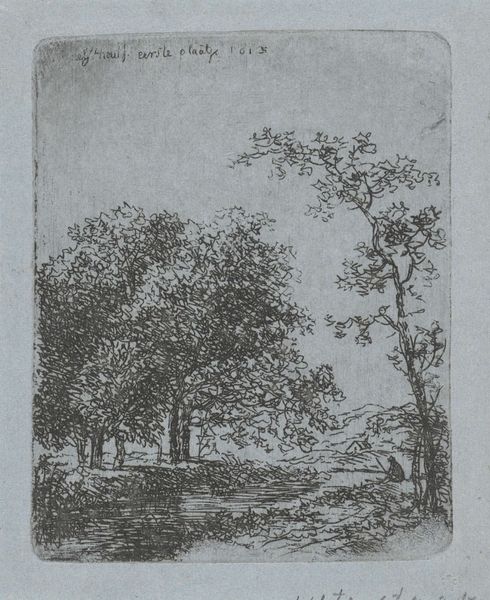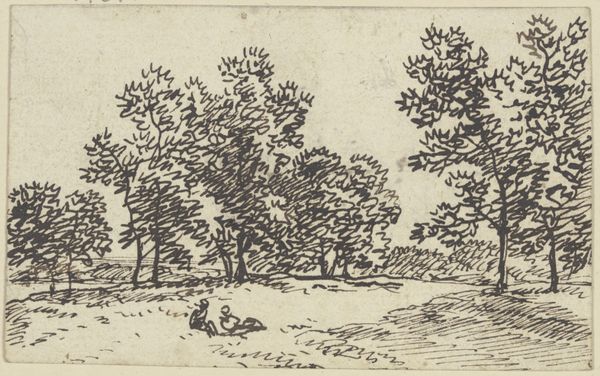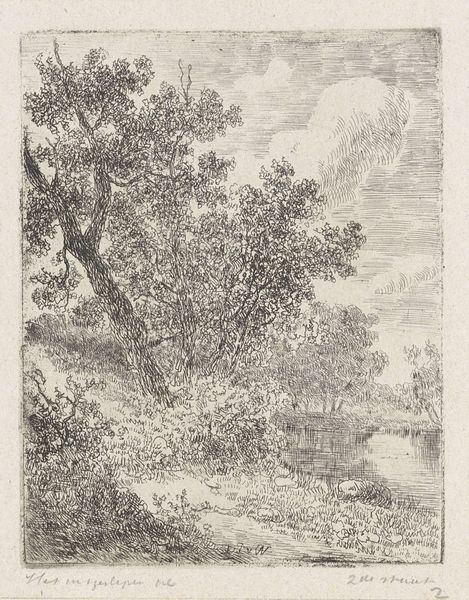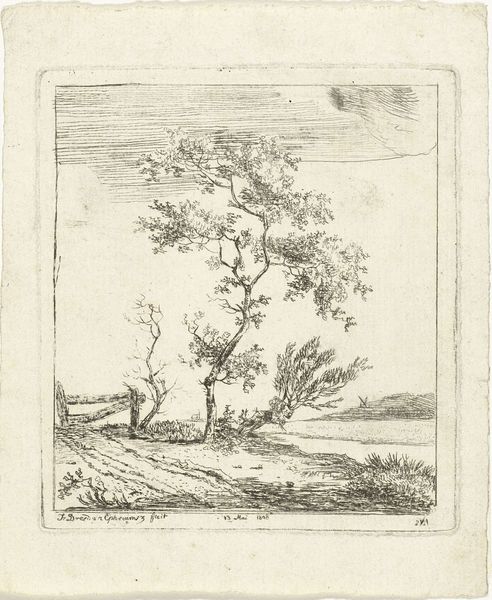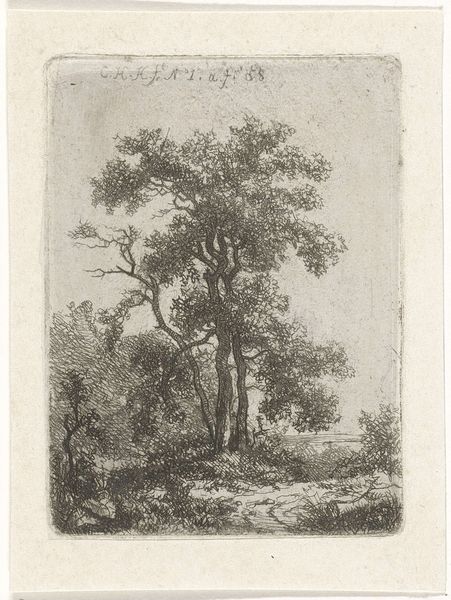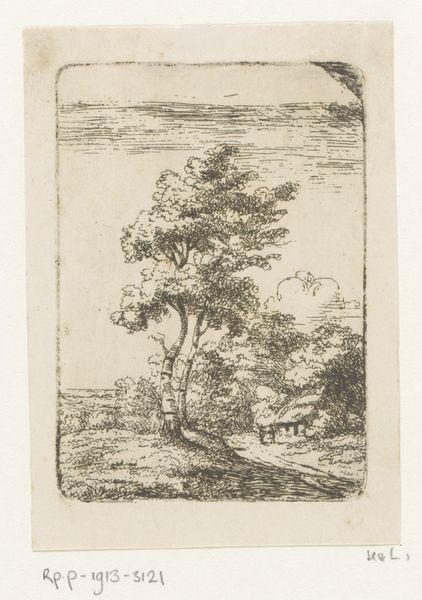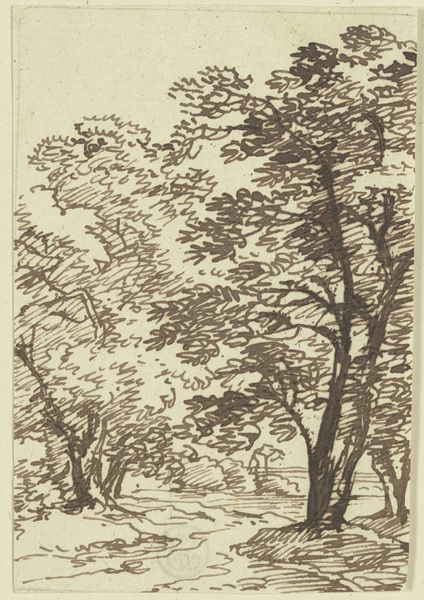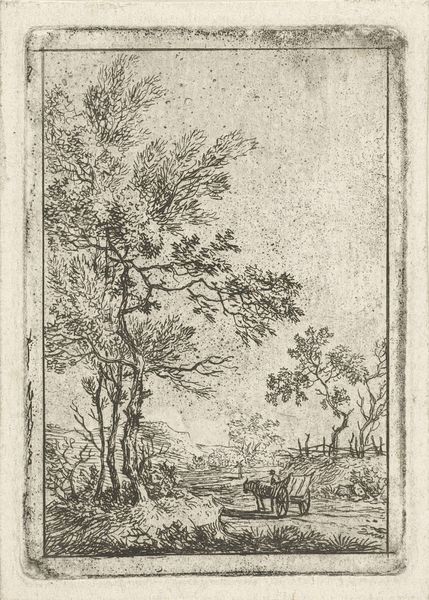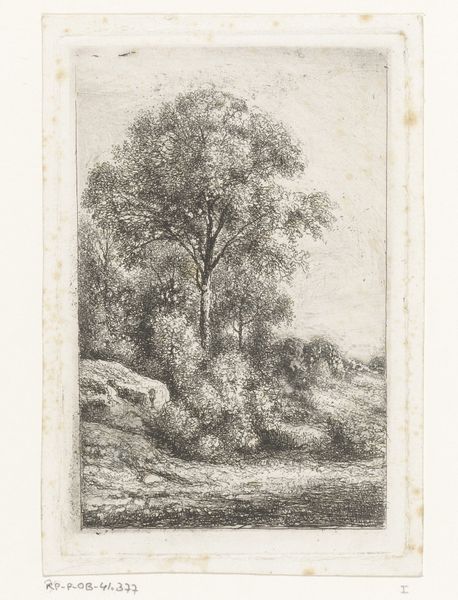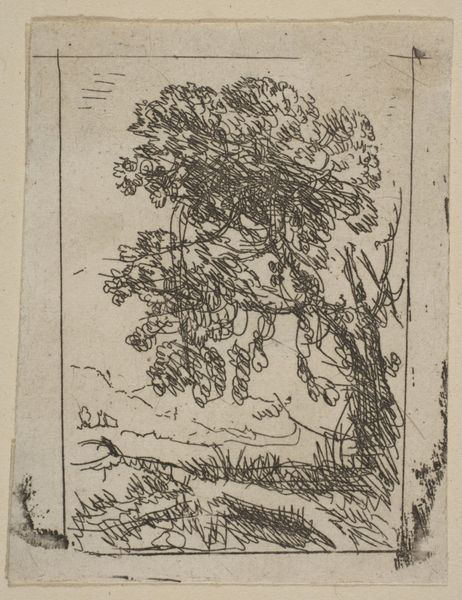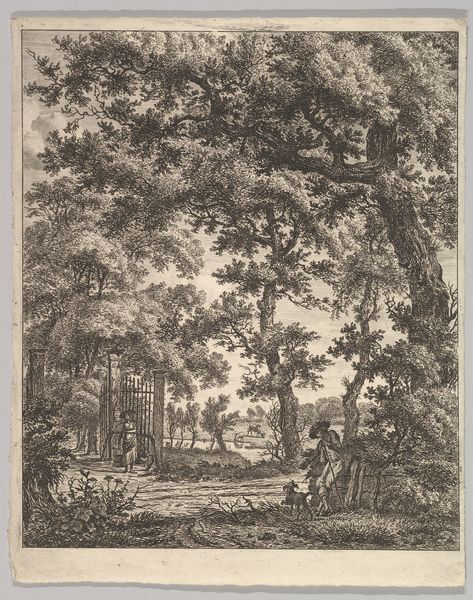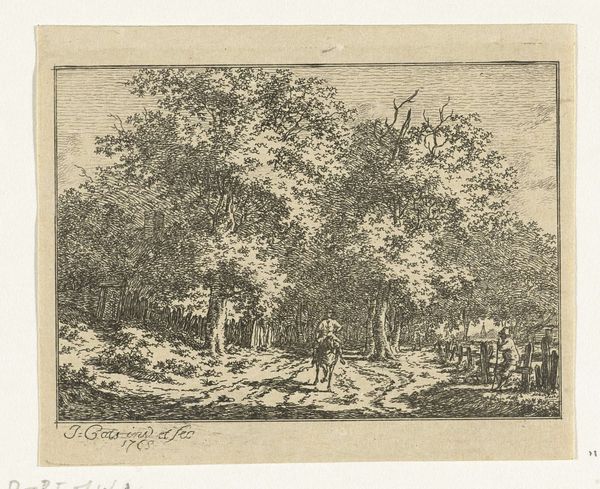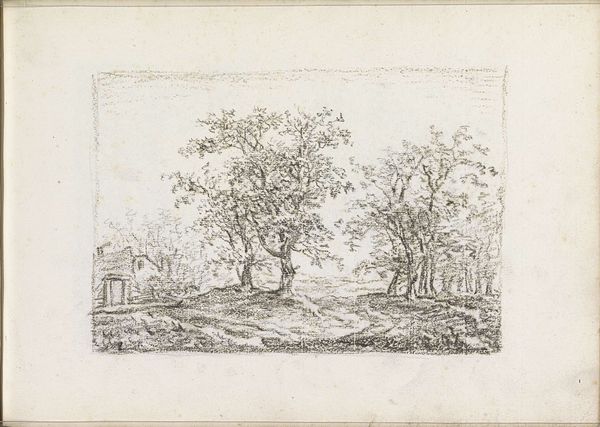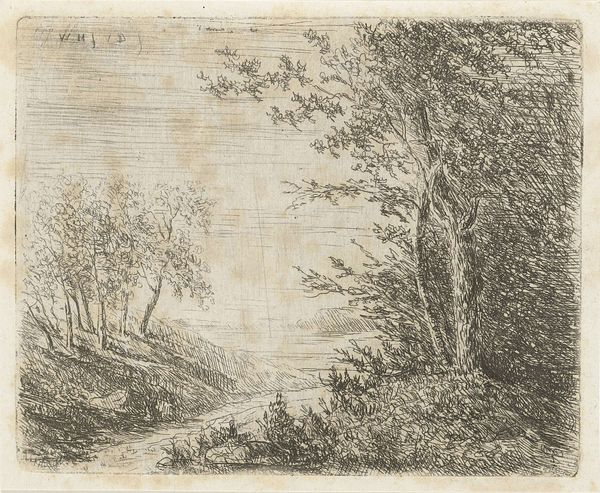
drawing, etching, paper, ink
#
drawing
#
etching
#
pencil sketch
#
landscape
#
river
#
paper
#
ink
#
forest
#
romanticism
Dimensions: height 58 mm, width 46 mm
Copyright: Rijks Museum: Open Domain
Andreas Schelfhout made this etching, "Fisherman by a River in a Forest", around 1813. As an etching, the image begins as a waxy ground applied to a metal plate, likely copper. The artist then draws through the ground with a needle, exposing the metal. Immersed in acid, the exposed lines are bitten, creating grooves. This intaglio process allowed Schelfhout to create a print with a distinctive texture. The fineness of the etched lines captures the detail of the trees and the reflection in the water, while the varying depths of the lines create a sense of depth and atmosphere. It is a landscape, a genre that became increasingly popular in the 19th century, reflecting a growing interest in nature and the changing rural landscape. The print is more than just an image; it is a record of a skilled process, a fusion of art and craft. Schelfhout's mastery of etching elevates this small print, reminding us that every work of art embodies both technical skill and artistic vision.
Comments
No comments
Be the first to comment and join the conversation on the ultimate creative platform.
